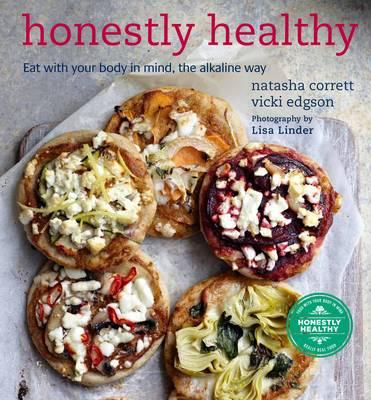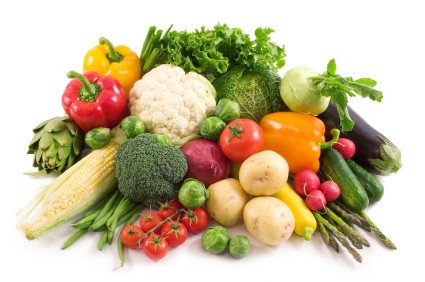It seems the hottest new healthy food fad is “eating alkaline”as the actresses Gwyneth Paltrow and Kirsten Dunst have recently revealed they “eat alkaline”.
Jennifer Aniston drinks an alkaline smoothie every day and supermodel Miranda Kerr recently revealed that instead of drinking normal pH neutral water, she drinks only water alkalized by a special filter.
Our bodies are naturally alkaline, but its functions produce acid. This stresses out your digestive system, causing you to gain weight and feel lethargic. In short, health fanatics claim “going alkaline” is the fastest route to having more energy, a flat stomach and glowing skin.
“I’ve been a fan of eating alkaline for years,” says nutritionist Vicki Edgson.
“It’s basically about getting the balance right between alkaline and acidic foods. We can eat both types, but we need to ensure we eat more alkaline foods than acidic ones.”
“Acidic foods are, as the name suggests, acid-forming in the body,” explains Vicki Edgson.
“They can cause weight gain, a bloated stomach, tiredness and other health problems. Whereas alkaline foods help you stay in shape and feel and look younger.
“The other good thing about this way of eating is that it’s entirely un-faddy: it doesn’t cut out food groups or involve counting calories.”
So, could you be acidic? Signs include weight gain, poor digestion, bloating, tiredness and skin problems (dryness or spots). If so, it may be time to give alkaline eating a go.
The alkaline diet first came to prominence in America when Robert Young wrote the New York Times bestselling The pH Miracle. In it, he explains how he discovered that the pH of foods (i.e. whether they’re alkaline or acidic) affects our weight and health.
“Eating alkaline foods acts as a buffer for the stresses and strains of life, which are acid-forming,” says Robert Young.
He goes on to explain how the more alkaline you are, the healthier you’ll feel. You’ll be able to lose excess weight more quickly, you won’t feel bloated or tired and your skin will look better. In other words, your body will function more efficiently, he claims.
A typical diet of coffee, processed food, too much meat, alcohol, sugar, salt and stress can quickly cause us to become acidic – and poor health, weight gain and tiredness will follow.

Honestly Healthy. Eat With Your Body In Mind, The Alkaline Way, by Natasha Corrett and Vicki Edgson
So stress causes us to become acidic too?
“Yes”, says Vicki Edgson who has recently co-written a book on alkaline eating.
“Our long-hours culture is causing many of us to become acidic. Tiredness and stress are very acid-forming. However, what is even more so is anger and bitterness.
“It’s one thing to get a little stressed about daily chores, but if you hold on to feelings of anger and resentment for many months or years, you run the risk of becoming incredibly acidic, which can be detrimental to your health.”
The good news is, Vicki Edgson says, if you manage your stress and include plenty of alkalizing foods in your diet, you can tip yourself back into an alkaline state.
Organic chef, Natasha Corrett, who with Vicki Edgson co-wrote Honestly Healthy: Eat With Your Body In Mind, The Alkaline Way, discovered the benefits of this diet first-hand.
“My weight yo-yo’d for years and I tried lots of different diets,” she explains.
“Then, in 2009, I hurt my back. So my mum sent me to an ayurvedic acupuncturist who took one look at me and said: <<You’re completely acidic>>. He then asked me if I struggled to lose weight, felt bloated, stressed, heavy, tired and struggled to wake up in the mornings and concentrate during the day. He basically described how I felt most of the time.
“He put me on a three-week alkaline diet and within days I felt amazing. I’d never really heard of alkaline eating before but it seemed incredibly simple and I never felt hungry so it didn’t feel like a diet. My energy levels improved, my skin glowed, the weight fell off – and, crucially, it’s stayed off – and my sugar cravings vanished.”
Natasha Corrett continued on the alkaline diet after the 21 days were up and lost 28 lbs in a few months, taking her from a size 12 to a size 8.
“I love food and I hate to deprive myself, so I created alkaline recipes of my favorite foods. I love really succulent chocolate brownies so I made them without sugar, salt, wheat or gluten.”
All the alkaline recipes are in her new book. Vicki Edgson says that acidic foods aren’t necessarily a bad thing – if you look at the list of foods, you’ll see plenty of acidic ones that can be part of a healthy diet. It’s the ratio you need to get right.
She recommends 70% of what you eat should be alkaline and 30% acidic to help tip your body into an alkaline state. She also advises having plenty of fibre from fruit and vegetables, plus wholegrains, to help sweep out your digestive tract and reduce your acidity, as well as lots of water and sleep.
The way you cook your vegetables also has an impact. For example, raw spinach is alkaline, but when you cook it, it becomes acidic. For this reason you should try to eat your vegetables raw or just lightly steam them.
Everything you think you know about healthy eating is wrong, according to a new research.
Here you find six myths about healthy eating:
1. Low-fat salad dressing is good for you
Drizzling a fat-free dressing over your salad isn’t as healthy as it seems, or so says a study.
Scientists found that eating your salad alongside a little fat helps your body absorb the nutrients from the vegetables more efficiently.
“Certain foods become healthier when eaten together,” says nutritionist Vicki Edgson.
“Many vegetables are fat-soluble, which means your body absorbs their nutrients better when you eat a little fat with them.”
In fact, James Duigan, author of Clean & Lean, and personal trainer to the stars, including Elle Macpherson, argues you should never have a fat-free salad.
“The more nutrients your body absorbs, the less hungry it feels, plus you’ll get fewer sugar cravings. Adding a little goat’s cheese, olive oil, avocado or nuts to your salad will make you healthier and slimmer.”
2. Skimmed milk is healthier
Studies show the health-boosting vitamins in full-fat milk – including vitamins A, D, E and K – are fat soluble, meaning your body absorbs them more efficiently when taken with fat.
“It’s also worth remembering that full-fat milk isn’t even that high in fat,” says James Duigan.
“It only contains around four per cent of fat compared with, say, cream, which is almost 50 per cent.”
So unless you’re drinking pints of milk every day, you’re better off sticking to full-fat milk. Vitamins A, D, E and K have been shown to keep teeth and bones healthy, and boost your immunity.
A study from Cardiff University found full-fat milk can help keep your metabolism fired up and your risk of heart disease down.

Everything you think you know about healthy eating is wrong, according to a new research
3. Margarine is better than butter
For years we’ve been buying margarine for its butter-like taste but with less fat and calories. Have we been wasting our time?
“Margarine is highly processed and contains hydrogenated fats which the body can’t break down through the digestive tract and liver,” says Vicki Edgson.
“These types of fats are stored in the fat cells of our body, interfering with the way in which we hold on to or lose fat. Butter, on the other hand, is a natural product with barely any additives.”
“Butter contains a natural fatty acid called CLA, which studies show helps reduce your risk of heart disease if you have a small amount each day,” adds James Duigan.
“CLA also enhances the flavor of your food and satisfies your appetite in a way that a bland processed spread never will.”
4. Only sweets contain sugar
“Many women know the fat content of everything, especially if they’ve struggled with their weight,” says James Duigan.
“What they don’t know is the sugar content of foods.”
And, according to James Duigan, this is where the problem lies.
“Traditionally, sugar is seen as a harmless treat, whereas fat is seen as the enemy,” he says.
“Our consumption of sugar has risen dramatically because as well as the obvious culprits, it’s also found in many everyday foods including yoghurts, pasta sauces and even bread.
“Sugar is more fattening. For a start, fat really fills you up. If you eat a bowl of creamy pasta or a fry-up, you’ll become very full. Whereas you can keep eating sugar – in the form of sweets, fizzy drinks and biscuits – and never feel properly full, so it’s easy to overeat.”
Sugar is bad news for our health, too. A study from Harvard University in the U.S. found that drinking a sugary drink every day increases your risk of heart disease. Another study found a high sugar diet is linked to heart disease.
“Sugar makes you fat because it’s the most refined form of carbohydrate,” says Vicki Edgson.
“It rapidly raises blood sugar levels, which affects insulin production and the rate at which the body lays down extra fat.”
5. Count calories to lose weight
“Technically calories do count when it comes to keeping slim,” says James Duigan.
“The calories you put in (what you eat) versus calories out (how much you move around) determine weight loss or gain. However, in reality, it’s a bit more complicated than that. Take, for example, salmon and avocado.”
Both foods are high in fat (the good, heart-healthy kind) and calories. An avocado contains 275 calories and a salmon steak contains around 170 calories (compared with around 90 in a cod fillet).
“But you’ll never get fat eating avocado and salmon,” says James Duigan.
“For a start, they contain omega 3 fatty acids, which as well as being heart-friendly, also help your body to burn fat more efficiently.
“And a low-calorie diet doesn’t necessarily mean a healthy diet. Plenty of low-calorie diets are made up of nutritionally-deficient foods such as bland cereal and processed, tinned food.
“This type of diet will leave you sluggish, unable to concentrate and craving sugar. In time, this can set up a binge/diet cycle that ruins your metabolism.”
James Duigan says: “Just eat nutritious, wholesome foods that are as unprocessed as possible and forget about how many calories they contain.”
6. You can’t eat too much fruit
“Lastly, most people assume the five-a-day message just applies to fruit, but try to eat more vegetables than fruit,” says James Duigan.
“Fruit is high in natural sugars, especially tropical varieties like bananas and mango and over-ripened fruit. Go for thin-skinned fruit – such as berries, pears and apples – because they contain more antioxidants.
“And always eat it with a little fat (such as nuts) because this will slow down the speed at which the sugar hits your bloodstream. This will keep blood sugar levels steady – sugary foods raise them rapidly causing them to crash, which leads to tiredness and cravings for more sweet food.”
Vicki Edgson adds: “Many people are sensitive to fruits and fruit sugars and experience bloating, wind and abdominal pain after eating too much of them. I recommend people eat more vegetables than fruit, yet most of us do it the other way around.”


